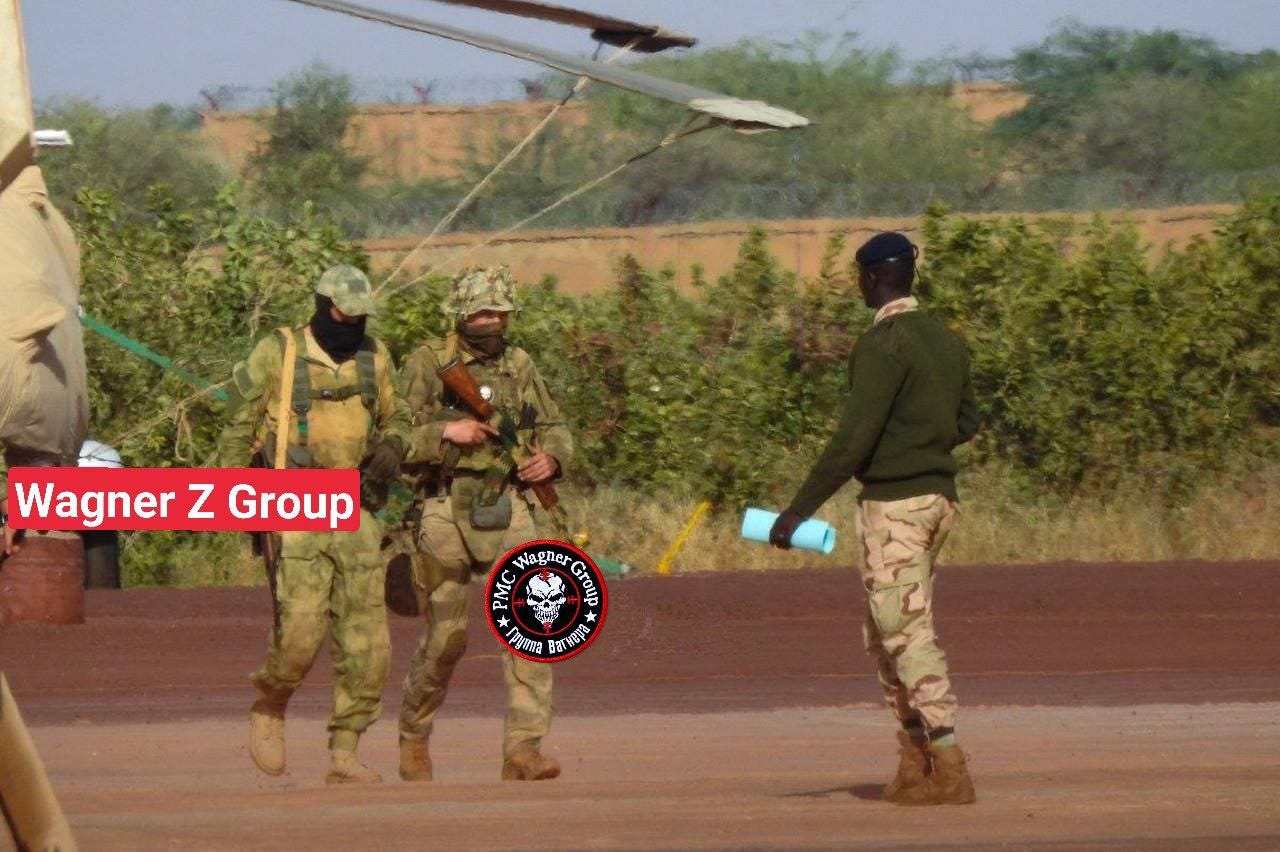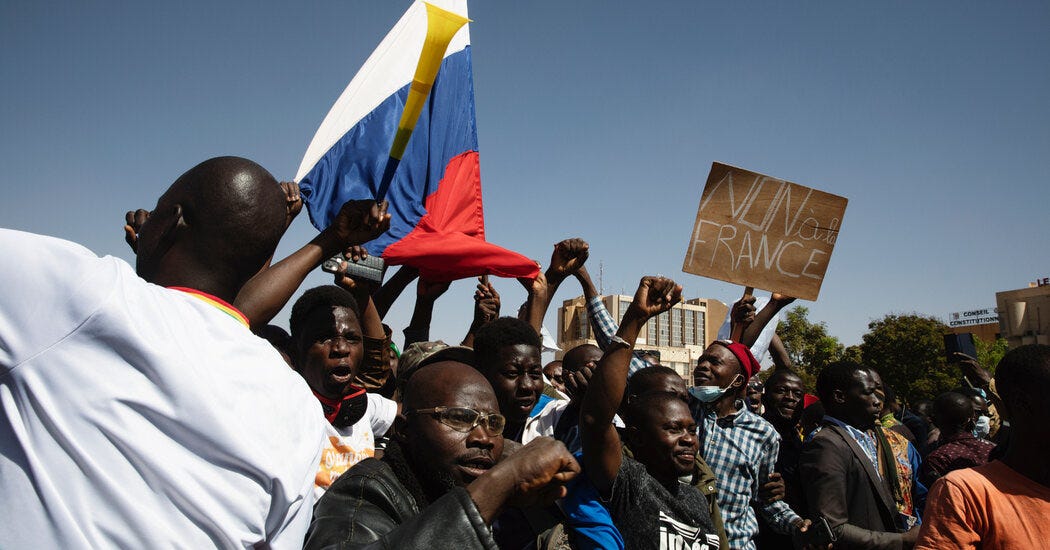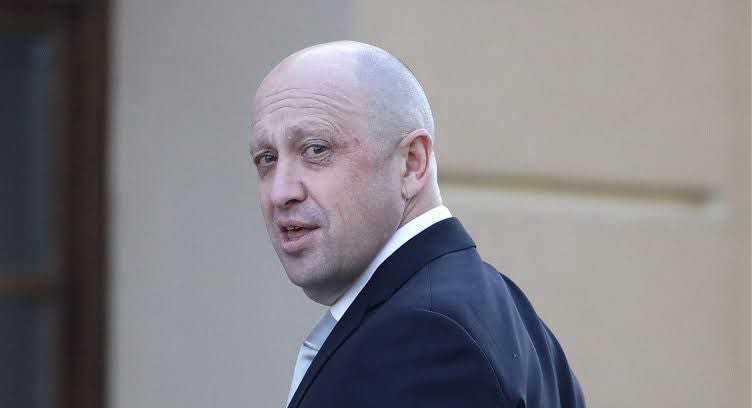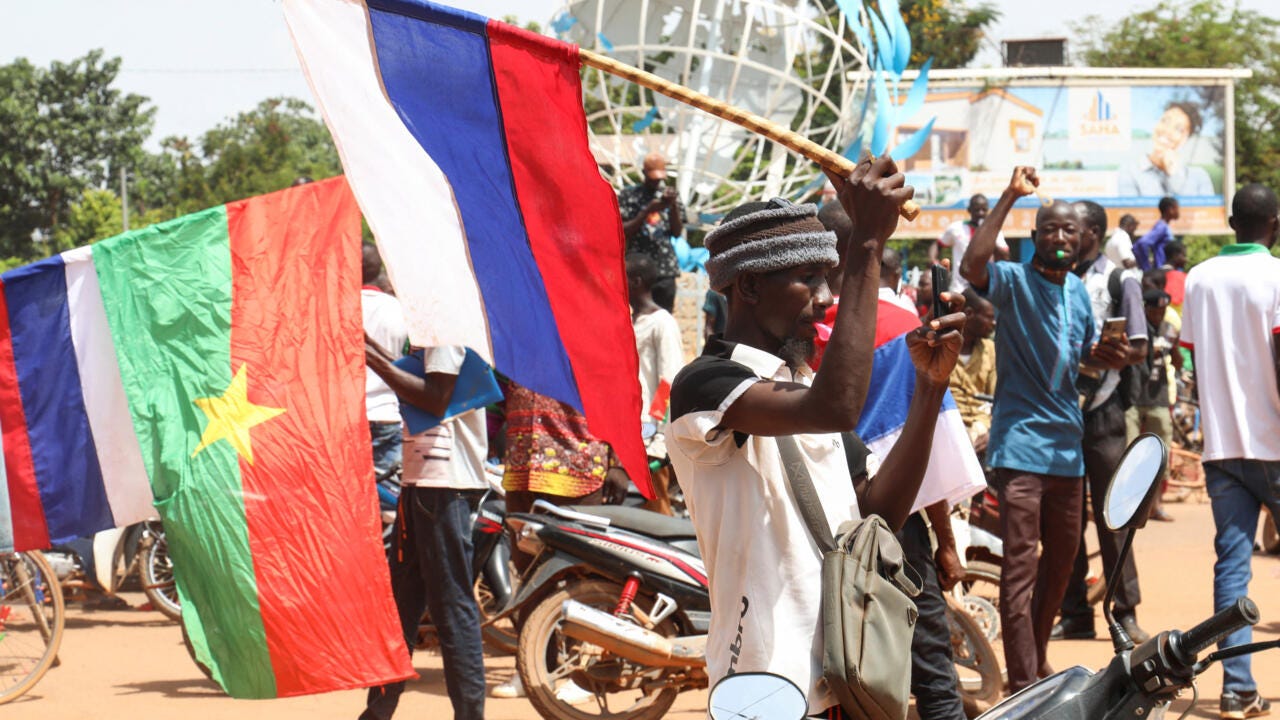In early January 2023, unconfirmed reports circulated that France would announce the departure of the French special forces dubbed ‘Operation Sabre’ stationed in Kamboinsin, on the outskirts of the Burkinabe capital, Ouagadougou. The complete withdrawal is expected to occur in February. The announcement came amid ferocious demands from the Burkinabe public for France to withdraw its troops from the country against the background of alleged contracting of the Russian Wagner group.
France has around 400 troops in Burkina Faso in a quasi-discrete operation. In November 2022, the French Minister of the Armed Forces, Sébastien Lecornu, indicated that the force might withdraw forces following a series of demonstrations in Ouagadougou, where demonstrators attacked the French embassy and the Kamboinsin camp, most of whom were carrying Russian flags.
However, the French State Secretary for Development, Francophonie and International Partnerships, Chrysoula Zacharopoulou from Ouagadougou, said on 10 January 2023 that ‘Operations Sabre’ is staying as long as needed.
On the diplomatic front, Burkina Faso and France are also experiencing increasingly bitter diplomatic relations, which has led the Burkinabe government to ask France to replace its ambassador, Luc Hallade.
With the withdrawal of ‘Operation Barkhane’ and ‘Takuba Task Force’ from Mali, the deployment of Wagner to the region, and the turbulent diplomatic relationships with Mali and Burkina Faso, the French presence in the Sahel region seems to be coming to an end.
Russia Extends Political Reach with Wagner Deployment
In December 2022, Ghanaian President Nana Akufo-Addo claimed that Burkina Faso had reached an agreement to recruit the Russian Wagner group, following the lead of Mali. Akufo-Addo’s statement came during the Africa-US summit and has ended months of speculation about the Burkinabe agreement with Wagner group.
According to the Ghanaian president, the Burkinabe leadership had allocated a mine in the southern part of the country to Wagner as a form of payment. His statement did not come as a surprise, as previously uncorroborated reports indicated the arrival of around a dozen Wagner personnel to Burkina Faso.
Militant Wire offers regularly published research and analysis accessible to paid subscribers. Recent exclusive articles include:
• Islamic State Boasts Legacy of Battles in Fallujah and Lasting Psychological Impact on America; Pro-IS Media Targets Saudi Arabia Following Islamabad Embassy Threat Warning
• Al-Qaeda Says Al-Shabaab Set to Takeover Somalia, Compares to Taliban in Afghanistan, Believes US a "Paper Tiger" in Decline
• Operations and Weapons Profile of Russia's Controversial Rusich Reconnaissance, Sabotage, and Assault Group
• Detention of Former Serb Police Officer Brings Kosovo Back to the Brink
• Key Cartel Leader's Arrest Spurs Chaos and Violence in Culiacán, Mexico
• Islamic State Khurasan's International Target Strategy: Suicide Bombing Aimed at Taliban Foreign Ministry and Chinese Diplomats
• Islamic State Khurasan Criticizes Taliban-China Relations, Alleges IEA Complicit in Suffering of Uyghur Muslims
• Weapons Analysis: Russia's Wagner Organization and Its Combined Arms Operations in Ukraine
In addition to this, on multiple occasions, the founder of the Wagner group Yevgeny Prigozhin has attempted in public statements to groom the military leadership in Burkina Faso. Prigozhin hailed the coup by Lt-Col Paul-Henri Sandaogo Damiba in January 2022 that toppled President Roch Kaboré and described it as “a new era of decolonisation.”
Another prominent Wagner leader, Alexandre Ivanov, who is heavily involved in recruiting Wagner personnel for deployment in Central African Republic, offered military training and support to the new Burkinabe military junta.
On 30 September 2022, hours after Ibrahim Traoré toppled Dambia in a second coup in the space of a year, Prigozhin congratulated Traoré, calling him “a truly courageous son of his homeland.”
The deployment of the Wagner group comes at a crucial time; as jihadi attacks soar in the country, and the national forces and paramilitary groups seem unable to push back attacks from JNIM and ISGS. Approximately 40% of the country is outside state control.
Russian influence in Burkina Faso is not new and did not start with Wagner’s reported deployment. Russia enjoys privileged economic relations with Burkina Faso, and the Russian company NordGold is the biggest gold exploitation company in the country, operating at least three mines. In December 2022, the Burkinabe government granted NordGold an exploitation permit for a new gold mine for four years, which allows a total production of 2.53 tonnes of gold.
Russia vs France Competition for Influence
Russia benefits from the growing negative sentiment against the French in several French-speaking African countries. Russia is also accused of feeding that sentiment through the fuelling of disinformation campaigns.
In Burkina Faso, the Russo-Burkinabe rapprochement peaked following the coup on the 30th of September 2022, led by Traoré that toppled Dambia.
Traoré led his coup with unmatched popular support. Demonstrators who took to the streets during the coup hailed him and called for the departure of the French and for military cooperation with Russia. His coup also gave rise to violence against the French presence, as Traoré’s supporters stoned the French embassy, some even trying to set it on fire.
Traoré openly turned towards Russia, and he seemed to be favoured by the Russians. During a meeting in November, he also displayed his closeness to the current leader of Mali, Col. Assimi Goita, who has chosen to rely on Wagner for internal security.
Signs of distrust between Burkina Faso and France have markedly increased since the arrival of Traoré. On 3 December 2022, the Burkinabe authorities suspended Radio France Internationale (RFI), following the lead of Mali. A few days later, two French nationals were arrested for espionage activities by the Burkinabe’s national forces and were expelled from the country on 17 and 18 December 2022.
Traoré seems to hold absolute power over the government, often influencing the Prime Minister’s decisions, Apollinaire Kyelem de Tembela. Tembela’s appointment was seen as a positive sign for France, lamentably this has now changed. He was opposed to breaking relations with France and moving closer to Russia. He also opposed those civil society organisations and political groups who called for Russian intervention, saying that there were not aware of the state affairs.
Tembela, who once demonstrated what can be called a negative stance towards cooperating with Russia is now making diplomatic efforts to strengthen the relationship with Russia. In November 2022, he said that the government would try to diversify its partnership and would not let the country be dominated by “one partner”, in a clear reference to France.
At the end of December 2022, Tembela announced during a trip to Russia that his country had recently committed to diversifying its partnerships, and he wished Russia to be an ally in the fight against terrorism. Tembela also confirmed his country’s participation in the Russia-Africa summit in 2023.
But France is not giving up without a fight to sustain its presence in the region. In her recent visit to Ouagadougou, Zacharopoulou said that France was ready to “move forward” with Burkina Faso following her meeting with Traoré. Zacharopoulou said that France remains committed to Burkina Faso, adding that France will be available to the country to create a future together.
France is not willing to give up on Burkina Faso yet and is still fighting to keep the country on its side. To do so, France is turning a blind eye to the possible presence of Wagner in the country. Zacharopoulou refused to comment on the alleged deployment of Wagner, saying she was not there to discuss rumours. Ultimately, Russia has its claws deep in the Sahel region, but there is a long way to go before France admits defeat.







It is occident which lose its grip in Sahel region. Not only france.
Mali is lost to jihadist. Soon Burkina. Next ivory coast.